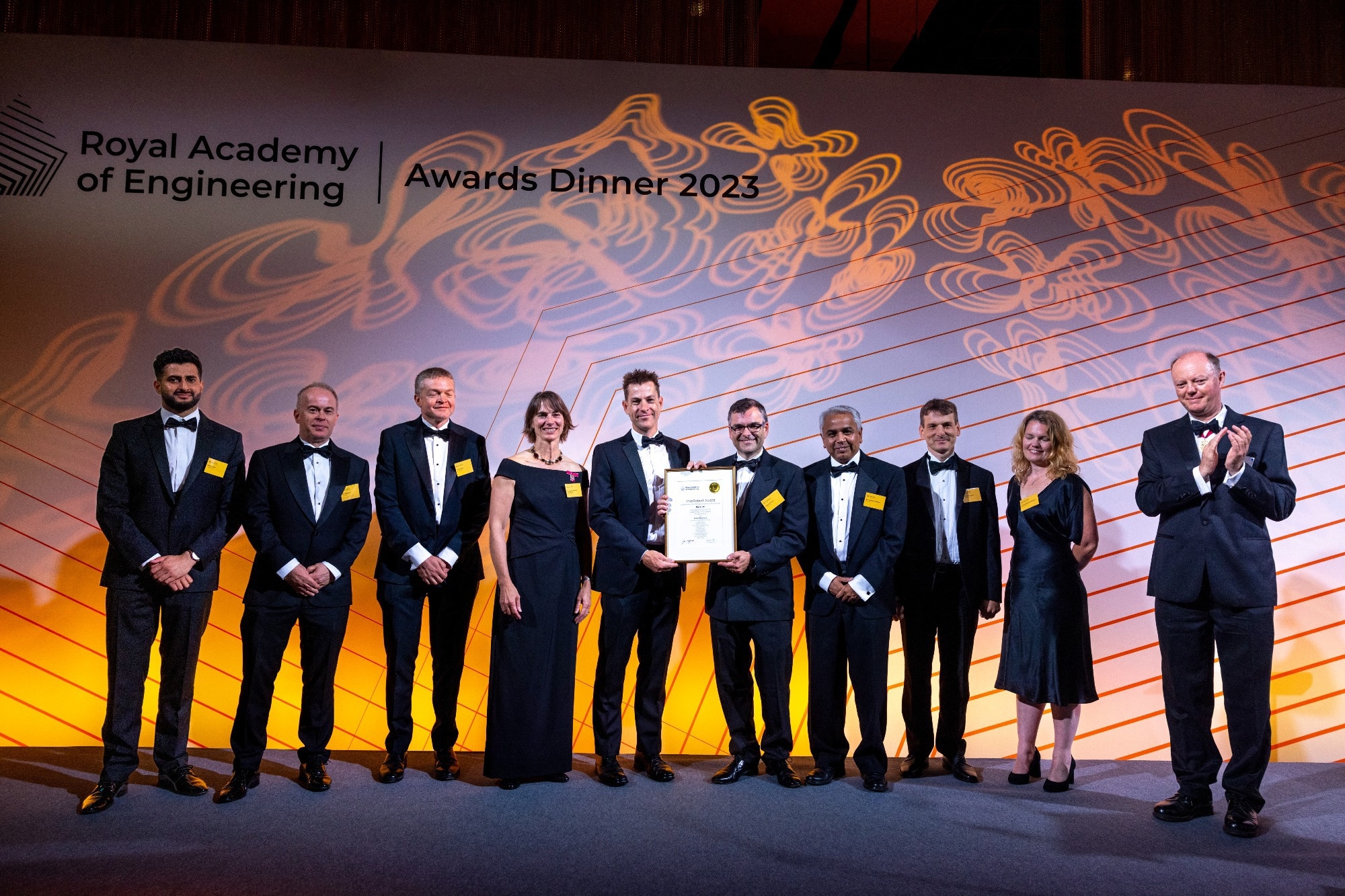Ceres Power’s pioneering clean energy technology has won the 2023 MacRobert Award. Honouring the UK’s top engineering innovations, the MacRobert Award was presented to Ceres in recognition of a ground-breaking fuel cell technology that promises to make a major contribution to decarbonising the world at the scale and pace required to save the planet.

Image Credit: Ceres
The Academy’s Royal Fellow, HRH The Princess Royal, presented the winning team behind the Ceres SteelCell with the MacRobert Award gold medal and a £50,000 prize at the Royal Academy of Engineering Awards Dinner in London on 13 July.
Run by the Royal Academy of Engineering, the MacRobert Award is the UK’s longest running and most prestigious award for UK engineering innovation. Ceres joins an illustrious list of previous MacRobert Award winners, many of which have transformed the world we live in. From the CT scanner to the first television graphics system and the Raspberry Pi mini-computer, MacRobert Award winners have demonstrated the sheer capability of UK innovators to develop world-leading, commercially viable products across all sectors of engineering. The 2022 winner, Quanta Dialysis Technologies, has made portable, high-performance dialysis a reality.
To win the MacRobert Award, innovations must demonstrate outstanding engineering ingenuity, commercial success and tangible social benefit. Ceres’ pioneering clean energy technology includes fuel cells for power generation and electrolysers for green hydrogen. The judging panel was impressed with the solid oxide cell based on common low-cost materials, which is combined with an innovative deposition technique and a highly differentiated stack technology. This technology means that just one cell is enough to light a room but the 250 megawatts of capacity set to come on stream in 2024 could power half a million homes.
Ceres has pioneered the use of commonly found materials: a gadolinium-doped ceria ceramic membrane as an electrolyte that operates at temperatures in the range of 500–600 C. This is a ‘Goldilocks’ temperature for performance, fuel flexibility, cost and robustness. Ceres’ licensing model has enabled it to establish partnerships with companies such as Bosch, Doosan, and Weichai, to deliver systems and products at the scale and pace needed to decarbonise power generation, transportation, industry, and everyday living.
The judges were also impressed by the truly reversible technology. Running in one direction it can use multiple fuels to generate electricity highly efficiently when and where it is needed. Run in reverse, it generates green hydrogen at high efficiencies and low cost, an innovation the MacRobert Award judges praised as a huge breakthrough in the clean energy revolution.
Professor Sir Richard Friend FREng FRS, Chair of the Royal Academy of Engineering MacRobert Award judging panel, said: “Engineering innovation is the driving force behind economic growth and a sustainable future. It is impressive to see what Ceres Power has achieved with its SteelCell technology. The innovation promises to be a huge game changer for hydrogen generation and marks a significant breakthrough in clean energy technology, providing the tools for companies to reach net zero, even in the most hard-to-abate sectors.
“The engineering heroes behind the UK's world-changing engineering innovations deserve to be celebrated. Ceres’ spectacular work continues the UK’s proud tradition of world-leading engineering innovation and highlights the important contribution the UK can make in tackling the ongoing climate crisis.”
Dr Caroline Hargrove CBE FREng, Chief Technology Officer at Ceres, said: “As a UK technology business, Ceres is playing an important role in decarbonising the global energy system, and we are thrilled to gain the recognition of the Royal Academy of Engineering as the winner of the 2023 MacRobert Award.
“The UK is a science and technology powerhouse; as a nation we have invented some of the world’s best technology that we see all around us today. At Ceres, we believe the same can be true of hydrogen and fuel cell technology.
“We have an incredibly talented team of nearly 500 scientists and engineers, pioneering electrochemical technologies that are enabling the world’s most progressive companies to deliver clean energy at scale and pace. And we need to succeed, to ensure that we can deliver a net zero future for our families, for society and for all our benefit.”